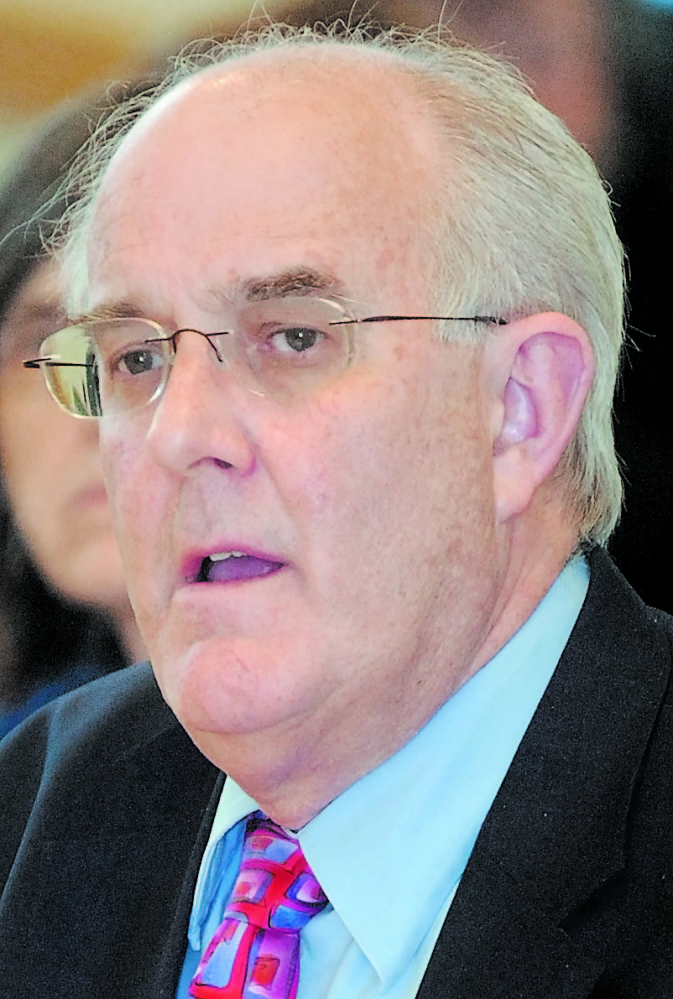AUGUSTA — Creating a school safety center within the Department of Education could do more to improve the safety of Maine’s schools than billions of dollars in security upgrades, according to a briefing delivered to the Legislature’s education committee on Wednesday.
The safety center would be a clearinghouse where state and local educational entities, law enforcement agencies and emergency management offices could share information about steps school districts can take to keep students and staff members safe. It also would tell schools how to look for possible funding sources for expensive changes.
The Department of Education hired PDT Architects and Safe Havens International, a nonprofit campus safety organization, to conduct a review of Maine school safety as required by a legislative resolve passed last year.
The resulting reports are being kept confidential because they contain information about potential vulnerabilities at schools. Instead, the Education and Cultural Affairs Committee and members of the news media received excerpts of the reports Wednesday. Education Commissioner Jim Rier said the Maine Office of the Attorney General determined that was allowed under Maine’s public records laws.
Although last year’s resolve was passed during a surge of interest about school security after the December 2012 mass shooting at Sandy Hook Elementary School in Connecticut, Safe Havens International emphasized that school safety efforts can’t be effective if focused too intently on “extraordinarily rare but catastrophic mass casualty school attacks.”
Safe Havens’ report says its recommendations should help for several types of school safety problems, such as shootings, natural disasters or even bullying.
The consultants drew information for the report from sources including online surveys of school superintendents, law enforcement officials and emergency management directors; visits to 15 schools across the state; and assessments that Safe Havens International has done in three Maine school districts in the past several years.
Rier said the consultants identified positives and negatives about the state of school security in Maine.
On the plus side, Maine has a low crime rate, and most school buildings are well-maintained; but the low crime rate also can lessen urgency about school security, Rier said.
The shortcomings found in Maine’s schools are common nationwide, Rier said, including insufficient planning and training for some emergency scenarios, older buildings that don’t have standard security features such as locks on every door, and few safety drills other than fire drills.
Safe Havens International and PDT Architects both provided lists of recommendations for schools. PDT Architects’ list is divided into three tiers of priority for schools to address, as they have the time and money. Safe Havens’ report says the school safety center is its foremost recommendation.
Both groups’ recommendations address school safety from a variety of angles: facilities, technology, planning, staff training, school climate, and coordination with outside agencies.
Some steps would be inexpensive, such as closing off or locking unsupervised spaces. Others are likely to be more expensive, such as improving intercom systems or redesigning school entryways.
Rier said the Department of Education will develop a self-assessment checklist for schools, though they still need to determine how best to distribute information without exposing anything sensitive.
Rep. Veronica Kornfield, D-Bangor, said she’s heard alarming accounts about schools lacking security. A school resource officer, she said, recently told her about going to a school where all the doors were unlocked.
Many schools, however, probably already follow all or most of the consultants’ recommendations, Kornfield said.
“I do want to acknowledge that we’re not starting from the beginning,” she said. “There are schools that are way ahead on this.”
Some legislators expressed concern that the recommendations won’t work for all schools or situations. Rep. Brian Hubbell, D-Bar Harbor, said some measures might seem like overkill on small islands where doors of homes are rarely locked; and Sen. Chris Johnson, D-Somerville, was worried that the standards might not accommodate schools with portable classrooms.
Rier said the Department of Eduction will be providing information, not setting mandates.
“Not everybody’s going to be required to meet the same standards,” he said. “I think they need to be made aware of the importance of them, and they can make their own decisions.”
Susan McMillan — 621-5645 smcmillan@centralmaine.com Twitter: @s_e_mcmillan
Send questions/comments to the editors.



Comments are no longer available on this story